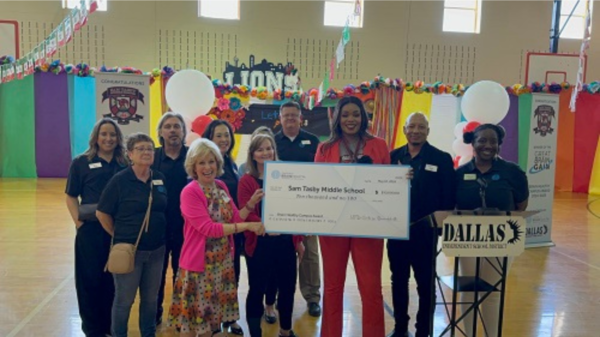By La Lonnie Denice Moore

Think of kids in congregate care like petals on a flower. Once the flower ceases to bloom, you run the risk of losing a bright young mind forever.
Mix in the complications of contracting and transmitting the Coronavirus to children in group homes, foster care placements, residential treatment facilities, and psychiatric hospitals, and you have a recipe for disaster.
COVID-19 hit hard and fast. The country was not ready, especially urban cities. COVID made it that much easier for inner city youth to simply ignore their education: their petals shivered, withered away, and died.
Populations from the foster care and group home settings already experience issues with truancy and a lack of desire to attend school regularly. Couple that with hopping around from place-toplace, school stability is not the number one priority.
When COVID-19 hit, the School District of Philadelphia scrambled to ensure that all children in the district had computers, Chromebooks, tablets, or whatever electronics they needed to be successful during the school year.
It took private companies such as Comcast to step in and donate devices so that the children in the city wouldn’t suffer because of their circumstance. They donated $5 Million in devices to lend a helping hand.
According to the Philadelphia Tribune, “A little over $7 million came from donations from local companies and organizations: $5 million from the Aileen and Brian Roberts Foundation, $2 million from Philadelphia Sixers owners Josh Harris and David Blitzer, $100,000 from Bank of America and $25,000 from Crown Castle.” Chanel Hill, 2020.
Parents who dropped out or barely passed and graduated are now full-time instructors. Even parents from the affluent neighborhoods struggled quite a bit to be teachers in their If the children did not want to participate in school in person, they had even less motivation to participate online. Children these days and in this generation have no problem with navigating a cell phone, downloading an app, or even breaking into their parents’ various accounts; but put a computer in front of them and ask ed them to use technologies such as Microsoft office or the Google Drive, sheets, documents, slides etc. and the children are even at a greater disadvantage.
We noticed in my area that after the first full year of children going to school online during the height of the pandemic, many districts, depending on whether they were in the green or the yellow zone, went back to school in person even if it was for half a day. The further the district from an urban city such as Philadelphia, the quicker they were back in the building.
Others stayed home by their parents’ choice. Now these ing pushed through.”
Talk about a second-rate solution to a catastrophic problem! Institutionalized children exemplified the phrase “you can only do what you know.” They followed all foes and detractors, “COVID is a hoax, it’s not real.”
It was much easier for them to accept a peer dying from a gunshot wound. Now all these kids are playing catch up because education to them was evacuating dorms very quickly. Populations such as teens with no home to return to and international students were even told that they had to leave campus.
There were other extenuating circumstances where certain accommodations were being made for individuals who could not leave but they made things very difficult, and some schools even required students to have the COVID vaccinations before they could reside on campus.
In some scenarios once college students were moving back between breaks or in between school semesters, they were told that they had to test prior to moving on campus.
Should they have an inconclusive test or a test that is positive, there were entire dormitories that were reserved for quarantining.
These young adults could not leave their dorm rooms. Meals were brought to them, and they were segregated. How’s that for your first college experience? Adult Learners deciding to go back to school to earn their undergraduate or even graduate degrees found that the models had changed as well.
Many states have instituted colleges that are online only. Once again this is not necessarily a new model because there were places such as University of Phoenix who paved the way for other schools to institute 100% virtual learning for their degree programs.
For example, Claremont Lincoln University in Claremont, CA has a master’s degree program. Those individuals never have to come to California to complete their coursework and attending graduation in person is optional.
Private institutions have discovered ways to profit because they have an absolute need.
During the time of COVID, private institutions lost money, so much that when they did allow students to come back, their admission processes changed quite a bit.
The SAT and ACT were no longer the standard and requirement to go to school. The GMAT examination for individuals getting their master’s degree, seems like a distant memory for many.
Nothing is the same since COVID-19, but those who are committed, intentional and want to see the flowers in their garden flourish, will rise above if they continue to water passion, inspiration, spirituality, and personal development.
These children and young adults are our future. In the richest country in the world, we must stop taking life and education for granted.
Stop using things like a pandemic as an excuse or a crutch.
So what things are different, differences are a part of life. If you didn’t finish school, go back. If your child is truant, sit next to them in each and every class. Push success because failure does not exist, it is not an option.
La Lonnie Denice Moore is the Engagement and Opportunités Assistant Education Liaison for Child First Services. La Lonnie’s contact info : La_Lonnie@childfirstservices.org phone : 484-744-0676.
This story is part of a project funded from the National Association of Black Journalists (NABJ) and the Chan Zuckerberg Initiative (CZI) to support original and innovative coverage of the COVID-19 pandemic, the coronavirus vaccine, and how these topics intersect into the nation’s K-12 education system.









You must be logged in to post a comment Login